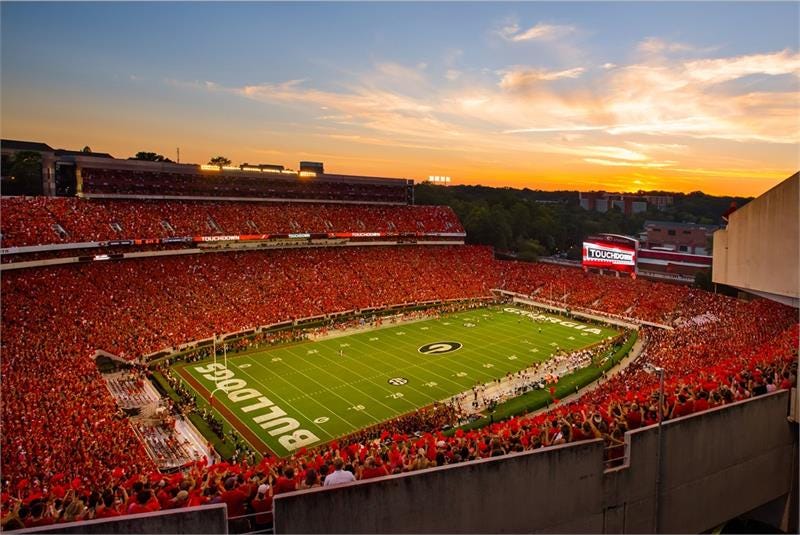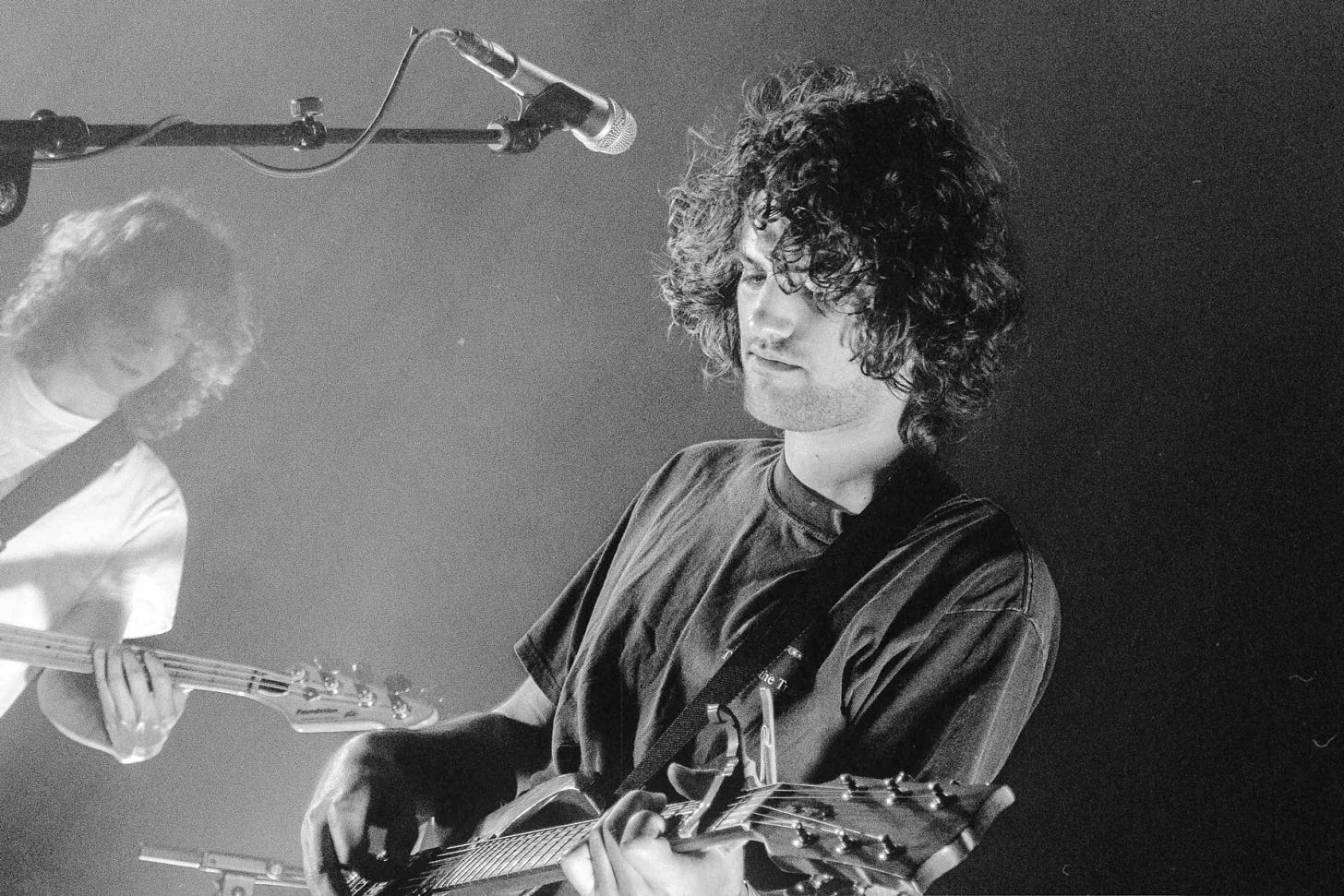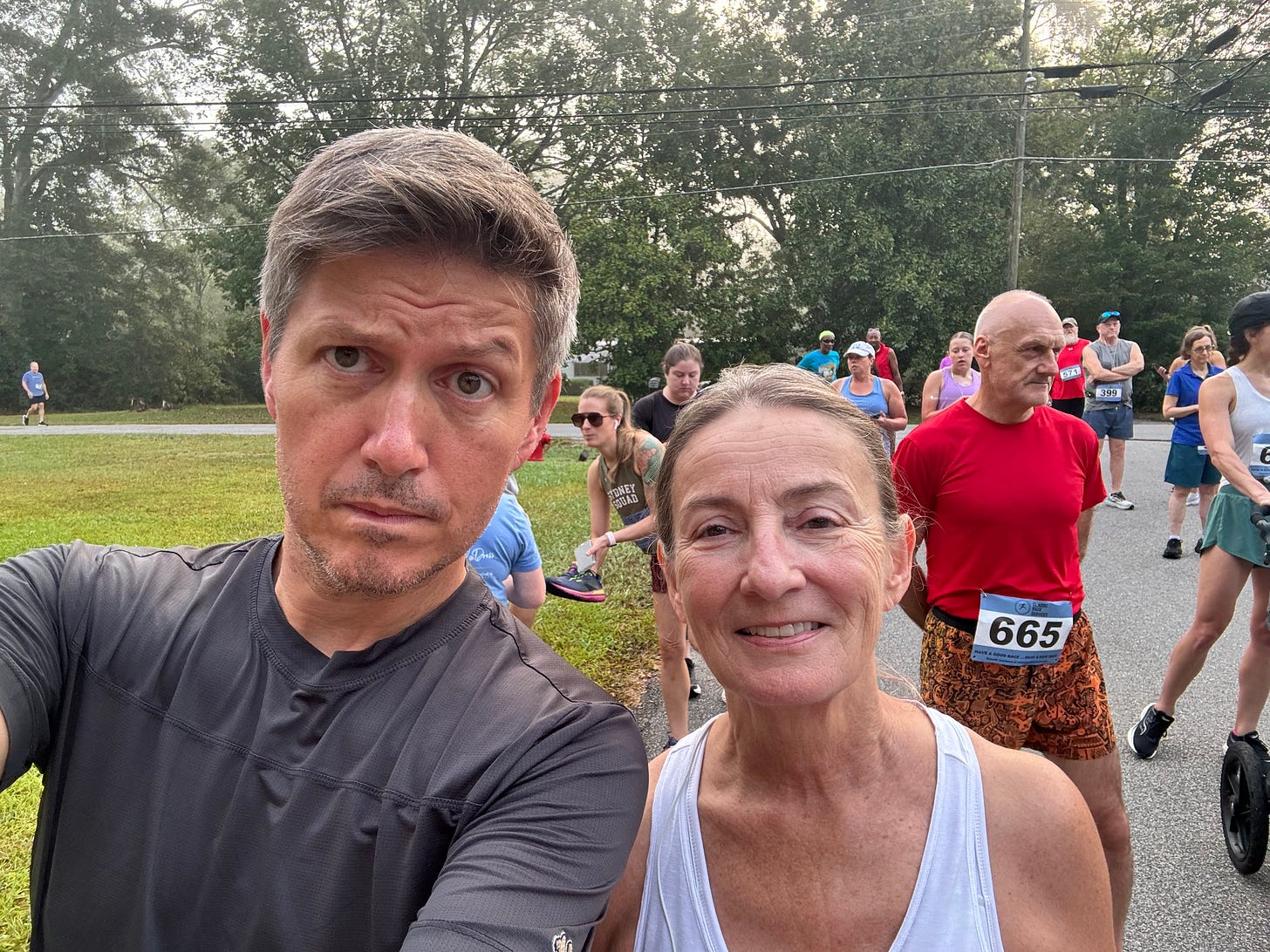Volume 5, Issue 36: Guy Walks Into a Psychiatrist’s Office
"Nothing changed, that's the problem."
Here is a button where you can subscribe to this newsletter now, if you have not previously done so. I do hope that you enjoy it.
The worst part about witnessing a tragic aberrant historical event is when you realize there’s nothing aberrant about it at all.
I was 23 years old and working 4 p.m.-midnight shifts at The Sporting News in April 1999 when I came in on a Tuesday and found everyone in the newsroom standing up and staring at the televisions. The news had just broken that there had been a shooting at a high school in suburban Denver. The screens were showing students sprinting through the parking lot and a kid trying to climb out of a window. It was shocking to see, or even to think about, the idea of someone walking into a high school, a high school, and randomly shooting at teenagers. It didn’t really compute, the way something you’ve never seen before doesn’t compute—a skyscraper collapsing, the space shuttle exploding, Times Square abandoned of human beings. You stare at it to try to make sense of it. But what you’re really doing is adjusting to a new reality. You now live in a world where this can happen. Which means you live in a world where it can happen again. And will.
At the time the Columbine shooting happened—and here is your reminder that the definitive account was written by my friend Dave Cullen in Columbine, still one of the best nonfiction books I’ve ever read (and which I interviewed Cullen about for New York back when it came out in 2009)—it was the fifth-deadliest mass shooting in American history. It is now the 17th. The killers themselves, as Cullen chronicled on the 25th anniversary of the shooting this past April, got exactly what they wanted: Not just fame, but influence. Cullen writes how there are entire online communities dedicated to them today, often full of disaffected, isolated teenagers who have convinced themselves the Columbine shooters were somehow the only people who could have understood them. The Tennessee Star reported last week that Audrey Hale, who killed six people, including three nine-year-olds, at The Covenant School in Nashville last year, explicitly wanted to “make Eric and Dylan proud.”
It turns out they got more than fame, and more than influence: They got ubiquity.
**********************
This week, at Apalachee High School in Winder, Georgia, a 14-year-old boy named Colt Gray shot and killed four people: two classmates, both 14, and two teachers. Winder—pronounced “WINE-der,” not “WIND-er”—is roughly the size of my hometown of Mattoon and about 25 miles away from Athens. Many people who live in Winder work in Athens, including my wife’s dental hygienist and a guy we’ve tailgated with, and it is close enough that the soccer game my son Wynn plays next weekend not only is taking place in Winder, it’s in fact listed on the schedule as a home game. When I looked at pictures of both Colt Gray and his father Colin, who was arrested along with his son this week, I see people that I see all the time. There’s a picture of Colt Gray from December 2022 where he’s smiling and wearing a Georgia Bulldogs national championship shirt. In that picture, from December 2022, he is younger than my son William is now. William has a shirt that looks just like it.
I mention all these details as a way of personalizing this tragedy, the way we always do when something like this happens, an attempt to break them down, make them more manageable, more real. But this is increasingly unnecessary. We don’t need to personalize them anymore. They have become some common that finding a personal connection requires no effort. In the early days of these shootings, you commonly heard people say “you never thought something like this could happen here.” You don’t hear this so much today. I have lived in six towns in my life. There has been a school shooting in, or near, every single one of them. Mattoon. Champaign. Los Angeles. St. Louis. New York. Now Athens. There is nowhere you can go where this does not happen.
Kids know this, better than we do. They have been going through active shooter drills—mandated by law here in Georgia—since they were in kindergarten. All teachers here wear ID badges with panic alert buttons to be pressed in case of a shooting; this system is widely credited with saving lives in Winder this week. We had an incident at my son’s school two years ago when one teacher accidentally pressed theirs. The whole school went into lockdown; my son Wynn told us how his class stood silent, hiding, and that he was proud that he didn’t make any noise by crying. He was in the third grade. He was eight years old.
Whenever this happens, there is outrage. We saw it this week, particularly considering this state’s gun laws and the fact that so many of our elected officials, including the governor and the congressman who represents Winder, have done campaign ads where they are literally aiming rifles. But I do think we see less outrage than we used to. There is a certain grim sameness to the reaction, to the point that even the outrage has become to be seen as wasted effort.
Every time there is a shooting, this famous Tweet comes back around.
Moms Demand Action founder Shannon Watts, an excellent person who has been fighting this good fight for years, has argued that that Tweet shouldn’t be shared, that it is “dangerous because it encourages cynicism and hopelessness.” I understand and agree with that sentiment. I agree that is cynical. I also think it is true. It has been widely accepted that nothing is going to stop this from happening, and you can tell by the pivot we’ve all made to practical day-to-day responses to it. When this happened this week, we all felt sorrow and fear, and we sat down with our kids to talk to them about it. But the conversations weren’t about “how do we stop this?” It was more basic foundational real-world advice, about how to respond, about who to call, about where to meet afterwards. People talk to their kids about school shootings now in a way similar to the way they talk to them about crossing the street. You tell them to look both ways. You don’t pretend the cars aren’t coming. Your kid knows they are just as well as you do.
We’ve even pivoted to measures that are prophylactic in their prevention rather than legislative. The Apalachee shooter had been investigated by the FBI last year for threats he had made online—that his father bought him an AR-15 for Christmas after being contacted by the FBI is a primary reason he just got arrested and charged with second-degree murder—because that’s the only way we can think of to stop shooters anymore: To hope they’re foolish enough to put their plans online beforehand. This leads to its own copycats. A 12-year-old Athens kid—a kid who has not been named but could be a classmate of my son, quite probably is—was detained and charged in the wake of the Apalachee shooting for “threats made on social media containing images of firearms with the names of schools in Clarke County School District.” It happened in neighboring Oconee County as well. Also, there are Websites you can go on, right now, to buy a T-shirt with a picture of the shooter on it.
We have accepted that people have a desire to commit these crimes, just like people commit other crimes like theft and assault, and that they will continue to. The only remedy we have left to try to catch them before they try. It’s just the way it is. The outrage mostly drained away 20 or so school shootings ago.
We often ask, as a culture, what this means for kids who grow up in a world like this, a world where of active shooting drills, of fear that their school will be next, of knowing that their classmates could be making the same threats and could be capable of the same things. You know what it means? It means they’re just the first to understand that this is what life is moving forward, that, as far as they’re concerned, this is what life is. We’re the deluded people who remember a time before April 1999, when this was unfathomable, people foolish enough to think that’s a place we can return. Our kids aren’t learning that schools aren’t a safe place in a world of AR-15s as Christmas presents for 14-year-olds. They already know that. They’re learning how to manage it, how to navigate their way around it—how to accept the world as it is. Shootings aren’t horrific aberrant tragedies to them. They’re tornadoes—something you hope doesn’t come your way but that you better be ready for if one does.
Someday, not long from now, they’ll teach their own kids the lessons they’ve learned. It won’t seem strange or horrible to them that an eight-year-old knows how to stay quiet and not cry, is proud of himself for not showing that he was scared, when a teacher has pressed the panic button on their ID badge and you don’t know if, just outside that classroom door, that door you look at all day during the most formative years of your life, someone is carrying an instrument of death. They will just see it as the way things have always been. They will be right.
Here is a numerical breakdown of all the things I wrote this week, in order of what I believe to be their quality.
All You Need to Know About the Upcoming 2024 NFL Season, New York. My big annual throat-clearer for the season.
The NFL Won’t Be Able to Hide From America This Year, New York. Here’s a bit from this column:
What Could Slow Down the NFL? NBC News. Probably nothing.
Nine Players We May Say Goodbye to Soon, MLB.com. I’ll miss Matt Carpenter, I really will.
This Week’s Five Fascinations, MLB.com. On the Mets, Fernando Tatis Jr., the Matt Chapman deal, the sorta limp pennant chases and the new Bash Brothers in Oakland.
MLB’s Best of August, MLB.com. It was not a good month for my home team.
This Week’s Power Rankings, MLB.com. Only a few weeks of the regular season left, you’ll miss it when it’s gone.
PODCASTS
Grierson & Leitch, no show this week, Grierson is at the Toronto Film Festival.
Seeing Red, Bernie and I are enjoying the recent hot streak, even if it’s too late.
Waitin’ Since Last Saturday, we recap the Clemson game and preview the Tennessee Tech game.
Morning Lineup, I did Friday morning’s show.
LONG STORY YOU SHOULD READ THIS MORNING … OF THE WEEK
“A Four-Part Rave For MJ Lenderman’s ‘Manning Fireworks,’” Steven Hyden, Uproxx. Hyden is the music critic I—and many others—ready for a lot of reasons, but the primary one is encapsulated in this terrific review, which is by turns earnest, joyous, funny and inspirational. I find myself listening to this album on repeat and the coming back to Hyden’s review throughout.
ONGOING LETTER-WRITING PROJECT!
This is your reminder that if you write me a letter and put it in the mail, I will respond to it with a letter of my own, and send that letter right to you! It really happens! Hundreds of satisfied customers! (I’m sorry I’m so behind on these. But I am starting to catch up!)
Write me at:
Will Leitch
P.O. Box 48
Athens GA 30603
CURRENTLY LISTENING TO
“Wristwatch,” MJ Lenderman. Hyden’s right, everything on this album is great, but this is the one I keep coming back to. Lenderman has said the song is about “this idea of alpha males gaining popularity. People spend thousands of dollars thinking they can learn how to be the ‘perfect man’ or something. It’s embarrassing.” He’s not wrong, and the song has a real anger to it, but there’s also empathy there: It finds this guy pathetic, but mostly, it just finds him sad. Seriously, this guy is the real deal.
Remember to listen to The Official Will Leitch Newsletter Spotify Playlist, featuring every song ever mentioned in this section.
Also, now there is an Official The Time Has Come Spotify Playlist.
I ran a race with my mom last week. Always remember, if you can, to run races with your mom.
Off to a Sanford Stadium gameday … and, when we’re back home … GO ILLINI.
Best,
Will









I keep thinking back to the classic and tragically oft repeated Onion article about "’No Way To Prevent This’ Says Only Nation Where This Regularly Happens”. It was once biting satire. Now it's more like a desperate plea.
💔
That's all I can think of to say.
💔